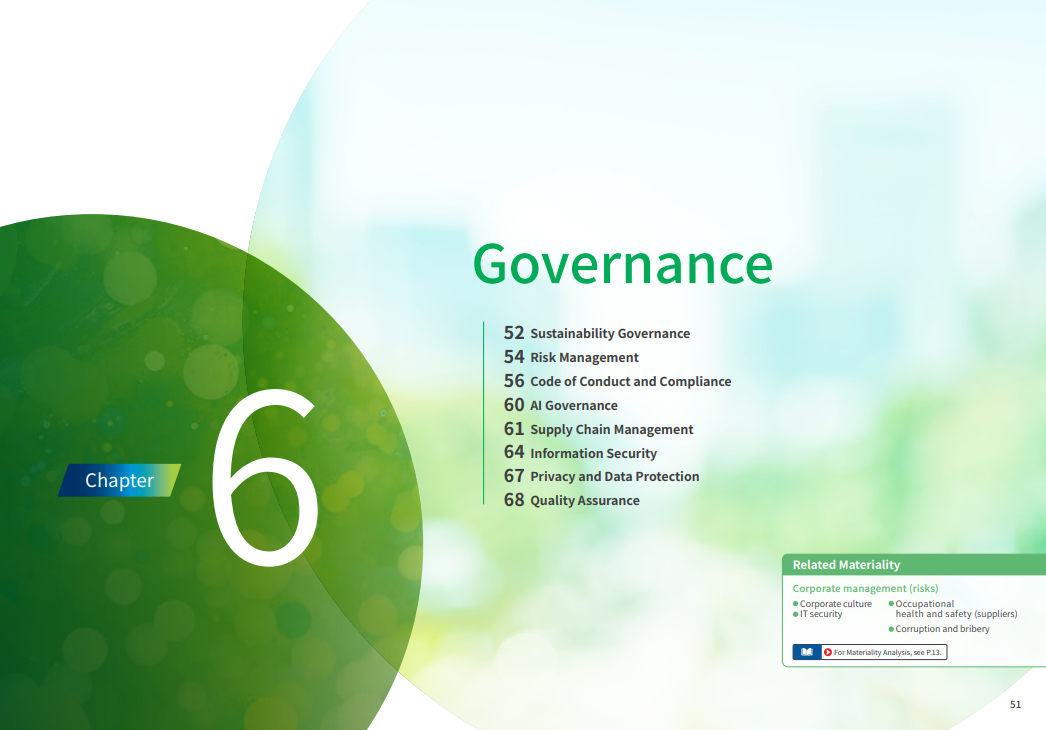Internal Control Systems
YOKOGAWA has established and operates an internal control system to ensure the appropriateness of its operations while promoting management efficiency, sustainable growth and increased corporate value.
The Group Management Standards (GMS) have been established as the basic management policies and rules that apply to YOKOGAWA Group, and the internal control system is implemented by clarifying the roles and responsibilities of each business process. Internal control responsibilities are assigned to each organization, and the GMS is maintained and operated. The person with overall responsibility of each GMS (GMS owner) is responsible for the management and operation of the GMS for which the person is responsible and works according to a plan set at the beginning of each fiscal year to ensure (i.e., maintain and improve) the effectiveness and efficiency of the business processes.
In addition, the Board of Directors supervises the execution of duties by the Executive Officers, establishes the basic policy for the internal control system in the execution of operations, and monitors and supervises the establishment and operation of the system. In addition, the department in charge of internal audits conducts the effectiveness of the internal control system and reports important matters to the Board of Directors and the Audit Committee.
Risk Management
YOKOGAWA has established an Enterprise Risk Management (ERM) system in accordance with ISO31000. The Risk Management Committee, chaired by the President and Representative Executive Officer and consisting of all Executive Officers, supports management judgment and decision-making related to risk management. The deliberations and decisions of the Risk Management Committee are reported to the Board of Directors for confirmation. Advice from the Board of Directors on risks that require attention and measures related to specific risks is utilized to improve risk countermeasures and risk management activities.
The department in charge of internal audits evaluates the effectiveness of the system and process and reports important matters to the Audit Committee and the Board of Directors. In addition, affiliated companies, which are the implementing bodies of risk management, strive to manage risks autonomously. The head office/business divisions and the department responsible for risk management (the department in charge of ERM and Risk Management Committee secretariat) promote and support various activities for these implementing bodies, focusing on risks that could have a significant impact.
Compliance
Yokogawa has set forth its basic compliance policies in the Yokogawa Group Code of Conduct and directors take the lead in working to see that business ethics are upheld and embraced throughout the Group.
The Yokogawa Group Code of Conduct is a set of guidelines for business conduct and consists of the Basic Policy and the Standards of Conduct. In addition, the Yokogawa Group Compliance Guidelines and the Yokogawa Group Anti-bribery and Anti-corruption Code set out how employees should respond to a variety of issues encountered on the job.
Moreover, we have established a department in charge of business ethics that is charged with the identification and resolution of issues pertaining to the compliance system. The Company is strongly promoting compliance management. It aims to be healthy and open, with both a culture that encourages and enforces proper ethical conduct and a system for preventing misconduct and scandals before they occur. In so doing, we will meet the expectations of investors and other stakeholders.
Our activities on Internal Control Systems, Risk Management, and Compliance are presented in the Yokogawa Sustainability Report.
